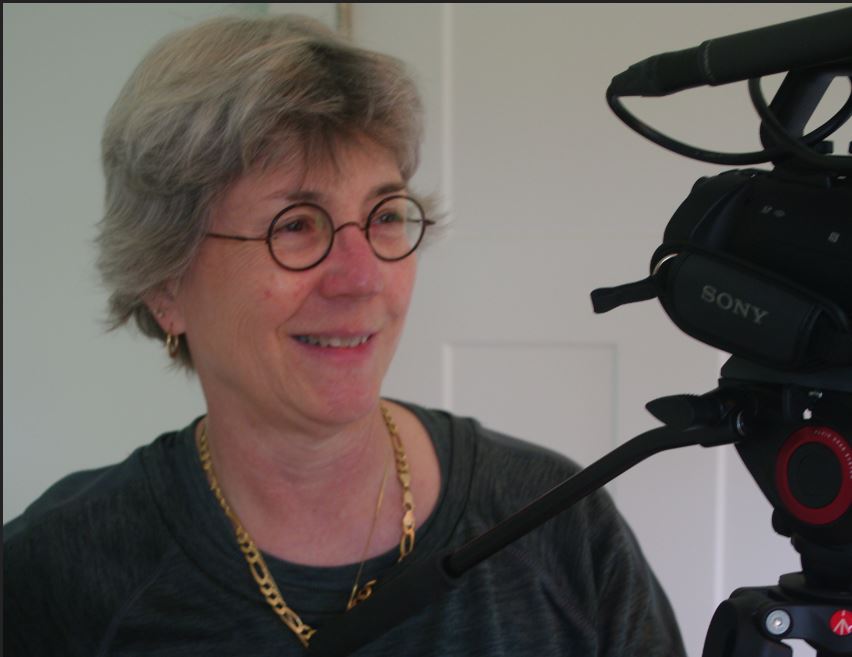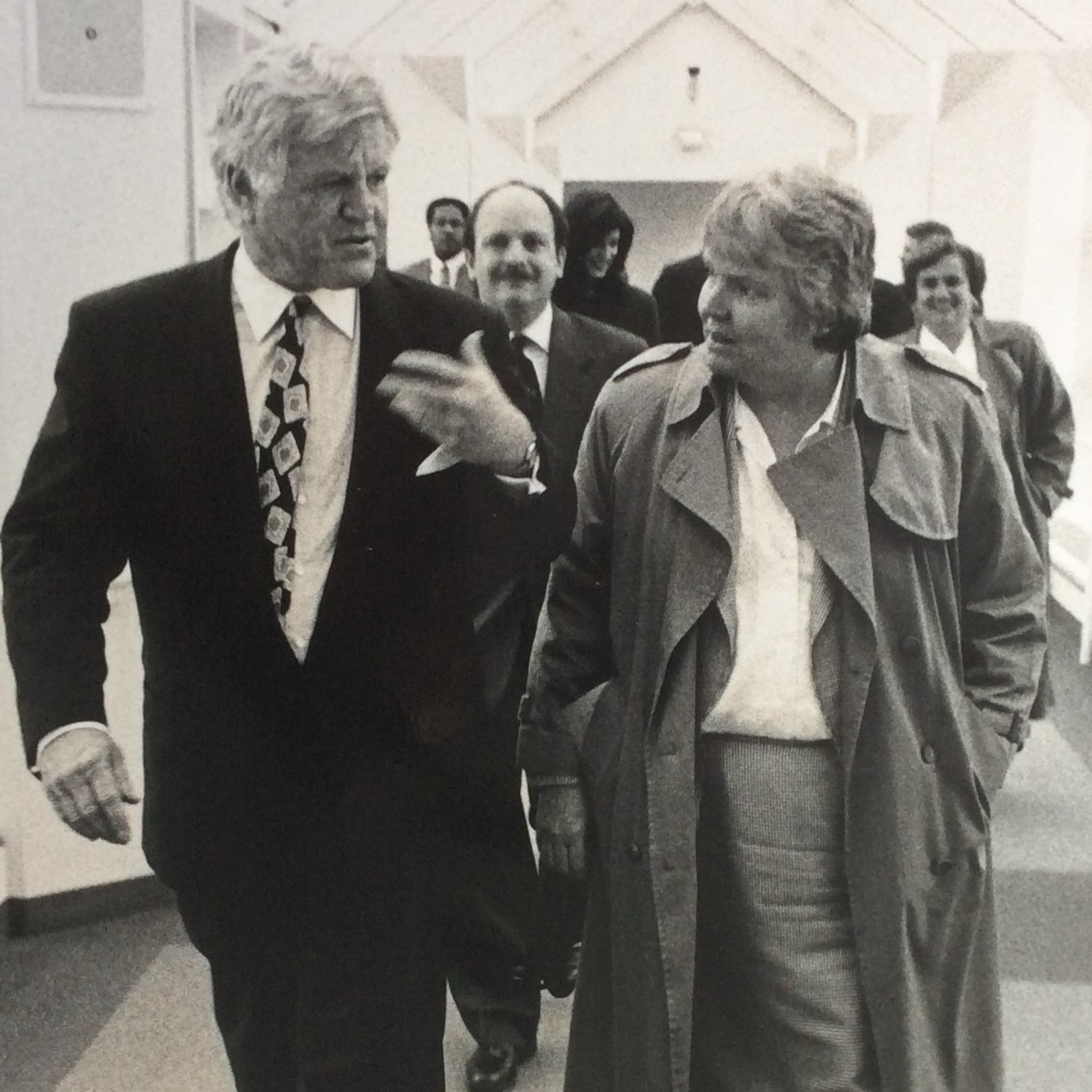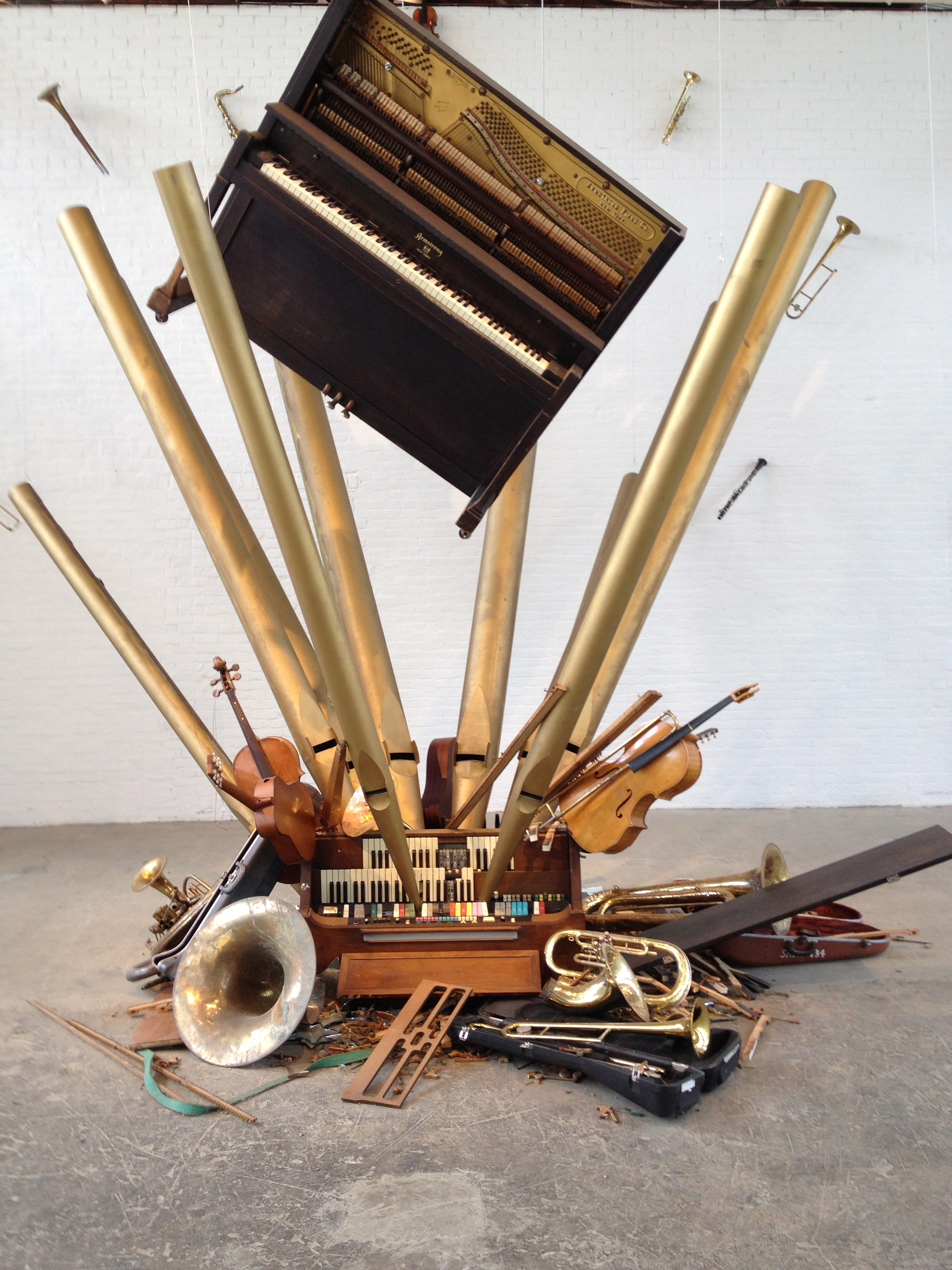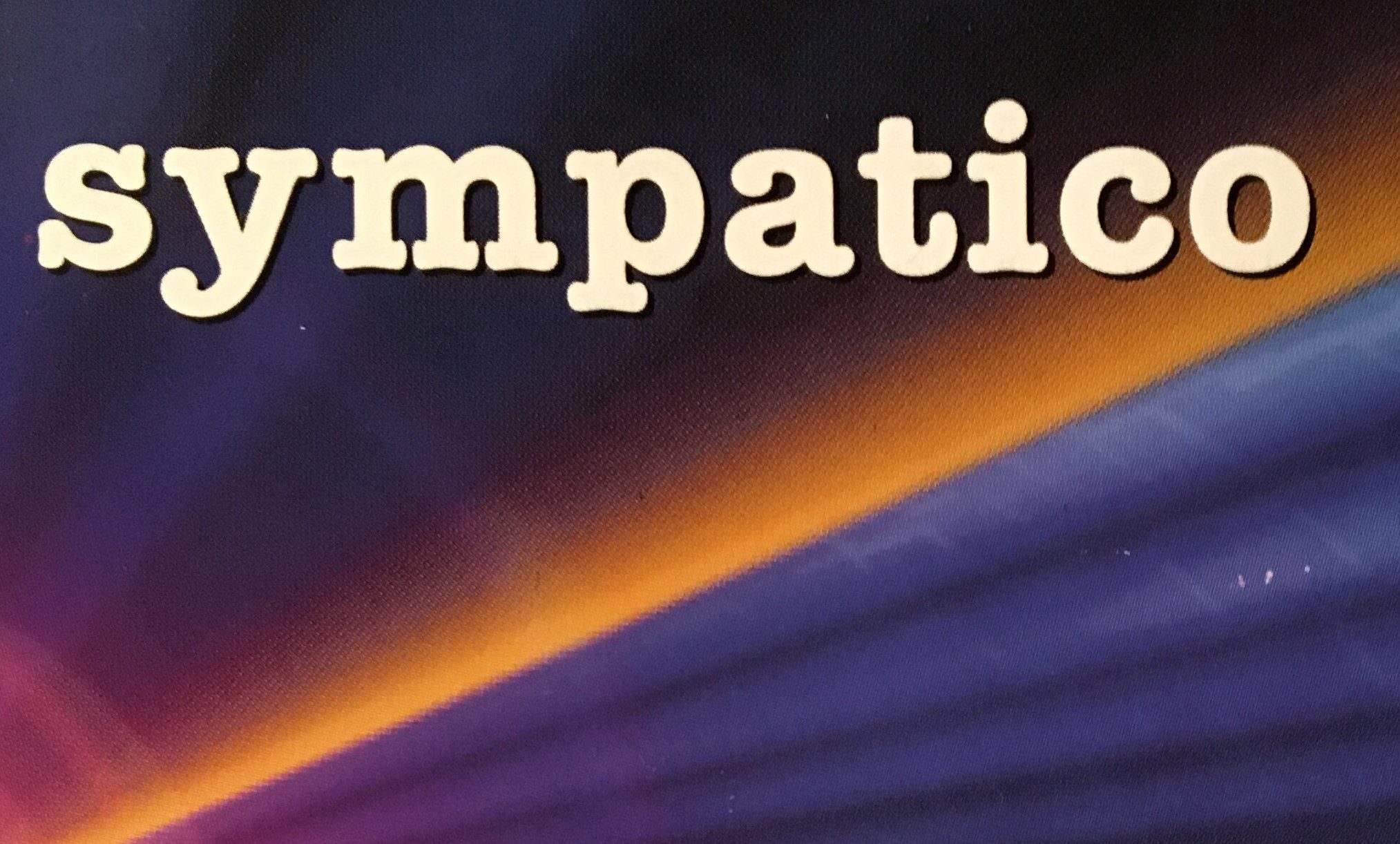Logline
Occasionally there is a person, or group of people who really change the world, for lots of people. More rarely there is a person who changes the world, in several different and seemingly disparate spheres. This is the astounding true story of such a person, Ann Maguire, and the powerful circles of people around her, who changed the world politically, socially and for breast cancer survivors. Told by those who were there, with profound implications for today’s activists.
Synopsis
This series builds upon and expands on the one hour documentary film, Ann Maguire: An American Hero.
That film takes the viewer through a brief tour of Ann’s life in politics, highlighting contributions to the Gay Rights movement, the Breast Cancer Movement, and the groundbreaking work in city services, particularly around homelessness.
Ann’s work includes managing the successful campaign that resulted in the election of the first openly gay person, Elaine Noble to an American state legislature, in 1974, more than 3 years before Harvey Milk was elected to the San Francisco Board of City Supervisors.
Ann was instrumental in building the political structure that moved the LGBT community into the mainstream political arena, building a power base that moved America lightyears in the direction of full recognition and rights for those folks, one that had been previously unimaginable.
Outside of politics, in a very personal, meaningful and creative manner, she provided solace to LGBT people in unique and effective ways, beginning her long service as a peer counselor during the early days of the Homophile Community Health Center, where Gay mental health providers established a place at which homosexuality was not treated as a disease. She hosted GayWay, a call-in radio talk show for 7 years during the 1970’s and literally provided a unique voice in the darkness for an entire community. She managed the nurturing lesbian bar and community space Somewhere, providing a home for countless women during an era where there were few options where they could find validation, comfort, and safety.
While working for the City of Boston, Ann devised the homeless census, now used in numerous urban centers to accurately assess the size of the homeless population at a given time. She served as the mayor’s liaison to the Gay community, and made dynamic changes in service delivery while Boston Chief of Health and Human Services.
Along the way she managed the successful campaign of Tom Menino for Mayor of Boston, bringing him from last to first in a crowded field in four months, launching what was arguably the most successful mayoral tenure in the city’s history. Then she ran the Boston Health and Human Services Department, making all of its divisions more responsive to the City’s residents.
Ann was a founder of the National and Massachusetts Breast Cancer Coalitions, bringing hundreds of millions of dollars to breast cancer research, a gripping and dramatic story, a life’s work in itself that anyone would be proud of. Shocking that these organizations did not exist until the late 80’s when Ann and her circle got involved, but there was a gaping need, and they filled it.
The film gives a brief overview of this amazing body of work. The series treats it with deserved depth and enhances the story with additional photos, video and new interviews not before seen. The film is about Ann. The series is about her, but is also Ann telling the story of the circles of people who pulled together to make those changes happen. Ann’s work has always been grounded in the concept of the great anthropologist, Margaret Meade, “Never doubt that a small group of thoughtful, committed citizens can change the world; indeed, it is the only thing that ever has.” This series will shed light on just how these small groups of people created monumental lasting change. It relays the history for those who were there and deserve to see their stories told, and for those who were not, but who need a blueprint for the social justice work their generation is now called upon to pursue.
Exploring the details and the rich context of the turbulent world in which this transformative work occurred, Ann introduces and honors the many unsung, unknown heroes who joined with her at all stages to make these monumental social changes happen. Offering her unique perspective as a leader, a collaborator and an observer through the decades of seismic change, Ann revisits these successful change movements with those who took the journey and elucidates how it all happened.
In the series, the story is divided into 4 one hour segments, (working titles, subject to change) each focusing on an era of Ann’s extraordinary working life in depth:
- The 70’s: Awakening the Change Agents, making electoral history, Changing the Landscape Forever
The first episode looks at the way certain specific resources, like GayWay and the Homophile Community Health Center made real and concrete, sometimes lifesaving changes in the lives of individual LGBT people in a very hostile and often dangerous culture. It takes us through Ann’s early years, and experiences, some tragic, that formed her personality, and provided her motivation. We learn about the birth and development of the early Gay Rights Movement in Boston, a fascinating story of how a small group of people came together to create a deep, savvy and highly sophisticated political movement that spread across the country. This movement was somewhat different, and absolutely as critical, as the better known movement that arose in San Francisco. Starting in small groups at the Charles Street Meeting House and other places around town, and working their way deep into the political system, the Bostonians were making their mark on the world from inside as well as outside the halls of power; pioneering the highly effective technique of working from within the political system, as well as in the streets. They built and communicated through completely new mechanisms, including the ground breaking Gay Community News (GCN) which still holds lots of this history and gay and lesbian organizations such as Dignity. We get to hear from the activists who developed this model, and trace the profound effect it had on the evolving movement and its later success.
It tells the story of Ann managing the successful campaign of Elaine Noble for a seat in the Mass State Legislature, long before Harvey Milk was elected to the Board of San Francisco City Supervisors. In 1974, 3 years before Mr. Milk’s election, Ann navigated the rough water of Boston politics, where many of the Irish Democrats were unwelcoming to gay people, and diametrically opposed to the desegregation of the city schools, a policy many Gay people, including Elaine supported. In spite of powerful, fractious and even violent divisions, Ann crafted a campaign that earned Elaine Noble a seat in the State Legislature from the diverse Fenway neighborhood, establishing a beachhead in mainstream politics from which a full scale and evolving battle for rights was launched. Extant archival footage, video and interviews with surviving activists will be featured to recreate this tumultuous time.
- Sisters and Somewhere: Safe Spaces for Thousands of Women
In 1977 Ann temporarily chose a different focus for her work. When a group of people is oppressed, and persecuted the political route is one obvious way to improve their lives. Another way is to make their experience better in the day to day, one person at a time, bringing hope, validation, comfort, and support to those who have been spurned by their families and society. Briefly though Sisters, and then on a full scale basis through Somewhere, a bar and community space for women, Ann was able to do just that. For 8 years Ann created a place where lesbians and their friends could feel safe, express themselves openly, hear music that sprang from their own community, celebrate the holidays together, develop strength and a sense of worth. The beauty of some of these stories is breathtaking, and told here for the first time.
- Working Through Mainstream Politics: Making Government work for Everyone
This episode investigates Ann’s work in City Services. She started this phase of her work as Mayor Ray Flynn’s liaison to the Gay Community and from there moved to the Emergency Shelter Commission, where she initiated a census process for the homeless, that has become the standard across the country and beyond. From there she took the reins of Tom Menino’s mayoral campaign, maneuvering him through a crowded field to victory, beginning a 20 year tenure that many will agree was the most successful in Boston history. Then she took the lead in the Department of Health and Human Services, changing the way government responds to people’s individual and collective needs.
- The Breast Cancer Movement and Beyond: Hundreds of Millions of Dollars, Unimagined Awareness
This chapter covers the founding of the National and Massachusetts Breast Cancer Coalitions, the successful movement for hundreds of millions of dollars of funding for research, and the start of the Silent Spring Institute. When Ann was diagnosed with breast cancer in 1988, she was appalled at how little organized work was being done around breast cancer. Completely unwilling to leave this matter unaddressed, Ann set about finding people. starting alliances, and building a huge network of breast cancer activists and researchers. Using some of the strategies devised during the AIDS crisis, Ann and a group of strong determined women started powerful organizations to wrest hundreds of millions of dollars from congress, and to awaken the millions of people impacted by breast cancer to rise up and voice their outrage over government and medical institutional indifference.
Each of these segments has its unique focus, and the theme that runs through them all is Ann’s commitment, unwavering determination, the remarkable success of these initiatives, that began almost literally from nothing, and the power of small groups to do the greatest things.
Topic Summary
This story is both timeless, and deeply relevant to the current political landscape. If there were no need for social justice work now, the film would be deeply meaningful because of the untold history it reveals of a population whose work and experience has not yet been adequately revealed to the world. In a time where all of the rights those people worked for are under threat, and many people are still the victims of bigotry and oppression, this series becomes urgently relevant and an essential contribution to the movements in development.
The generations who have been mobilized by the current social and economic conditions to join the Occupy Movement, the Bernie Sanders Campaign, and most recently have taken to the streets to support minority rights and oppose Neo-Nazism and White Supremacy, many of them are new to any kind of political action. They are unfamiliar with the history of the heroes and pioneers who managed the last phase of the social change movement, because this history has been largely untold by the mass media outlets with which most people are familiar. They are hungry for leadership and models, and many don’t even know that both of these exist, and in the very recent past. This series will elucidate this history, and in a way that can be used, immediately and effectively, right now.
Each day it becomes more apparent that the hard won accomplishments of the civil rights movements of the 20th Century are under coordinated attack from within and without the highest offices of government. People from all walks of life, ethnic groups, and sexual orientation as well as all women of all ages need this information as they take on this latest and powerful assault.
I am uniquely qualified to tell this story because I have lived it in a way that no one else has. I have known Ann since 1975 and worked in both of her Lesbian bars. I watched her and her collaborators shape and direct the rise of the political structure from the Elaine Noble election on. I attended meetings at the Charles Street Meeting House, and the State House, at people’s residences, bars and bookstores and women’s restaurants. I went with Ann to numerous broadcasts of GayWay, meeting the guests and hearing the callers, some whispering behind their closed bedroom doors, some standing in phone booths, so they would not be overheard by the straight people in their lives. I watched Ann transition into city service and rise through the city hall hierarchy to a cabinet level post. As a participant and close observer to history, my experience has little parallel. When combined with my interest in history, and experience bringing musical events and educational stories to video my particular qualifications have no parallel. I have a deep commitment to telling human stories from the perspective of the people themselves. My dissertation about women who had made successful careers in jazz told in their own voices brought their tales to vivid life. I have a talent for creating an environment in which people feel comfortable and empowered to tell their stories in a relaxed and authentic way. This is clearly evidenced by the interviews in Ann Maguire: An American Hero.
Ann Maguire has a perspective on these events that simply no one else has. She has a knowledge of how actual political change happens, from having done it over and over again in world changing ways. She can outline the process in a step by step manner.
Ann is completely committed to making the contributions of her collaborators known. Traditional telling of history often overlooks the women, the LGBT activists, the neighborhood organizers, the breast cancer survivors. We don’t see them in high school social studies books, even though they have had as much impact on people’s lives as the few legends of history that are household names. Harvey Milk has become a household name, and the San Francisco movement has gotten some of the recognition it deserves. But the story is woefully incomplete. There are many who didn’t suffer untimely deaths whose accomplishments should be added to the annals of great works. Ann wants these great stories of heroism given wide exposure, and the protagonists recognized. And now is the crucial time, while many of them are still here to speak of these things in their own words.
Artistic Approach
I have, and have had since the beginning of this project, a clear vision if the style that best serves this story. There are so many awesome technical tools and cinematic innovations available to us, and more emerge every day. These are wonderful for so many applications, but in some cases, and this is one of them, the best thing for the story is simply to get out of its way. Each of the people who are participating through interviews is a powerful storyteller in his or her own way. There is great power in people telling their stories to one another. My role as the film maker, the facilitator and presenter, is to create safe, loving, supportive spaces for these amazing people to simply speak from their hearts, minds, memories and passions. It worked in the first film and the approach will be enhanced by additional video, and photographic images in this one. The highest level of production values will be applied to keep the cleanest, clearest appearance, allowing the stories to emerge and connect with the viewers with the fewest amount of barriers.
Project Stage and Timeline
The project is underway. Some additional interviews need to be filmed. Additional photos and video need to be acquired. Some interview footage is already completed. Final writing of the 4 episodes will take 4 months. Additional interviews 4 months, acquisition of extant footage and photos 4 months final editing and post production, 1 year, resulting in a release date in August of 2019.
Intended Audience
Our intended audience is multi-generational and cross cultural. The movie will be meaningful to those who lived through, and participated in the history discussed. They deserve to see their collective past memorialized by those who can tell its story authentically. LGBT people in their 60’s through 80’s have been egregiously underserved by film makers in that very little of their actual history has been manifested through film. The generation of millennials who benefit from the huge social gains won by those who came before deserve to know this history as well, and they are hungry for it. Those going into the workforce now armed and protected by anti-discrimination laws and the right to marry need to know how that came about for them.
This film is essential viewing for all who are looking to preserve the rights that have been earned through all the civil rights movements of the last half of the last century. It is powerfully relevant to all who are looking to improve the lot of those in our midst who are still oppressed, and for all of those awakened by the Sanders movement and the actions and intended action of the current presidency. The work of social justice is far from over, indeed, the need has recently become more compelling. This film provides a roadmap for those interested in that work, who need one more than ever before.
The world is always enriched by the telling of authentic history and the stories of authentic heroes. Here we see what human beings can be at their best, and how we can do it too.
Distribution
This series is perfectly suited in both content and format to a PBS series broadcast.
Audience Engagement and Social Impact
This film will give those interested in social change work both inspiration and strategies to further that goal.
Fundraising Strategy
We expect to raise money from independent investors, big, small, and institutional, who see the value of the social change work done by Ann and her collaborators, and who wish to further this work by providing tools and inspiration to the next generation.
Funding to Date
Self-funded to date
Narrative
Each of the sections of “Ann Maguire: An American Hero” is the starting point for one of the series chapters.




